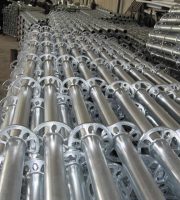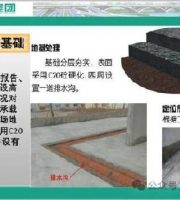However, there are two different contractual relationships between the contractor, the actual constructor and the material supplier: the construction contract and the sales contract.
The material supplier claims that the Contractor shall bear joint and several liability for the material payment debt of the actual constructor, which does not conform to the legal principle of joint and several liability.
The seller’s creditor’s right does not have a retroactive effect with the ownership of the goods, and the seller has no right to claim the creditor’s right from the user of the goods.
(1) Article 157 of the Civil Code stipulates: “after a civil legal act is invalid, revoked or determined not to be effective, the property acquired by the actor as a result of the act shall be returned; if it is impossible or unnecessary to return, it shall be compensated at a discount.
According to the purchase and sale contract of engineering materials between the material supplier and the actual constructor, the material supplier claims the contract liability to the contractor who is not the opposite party of the contract, which does not conform to the principle of contract relativity.
4.
The analysis is as follows: 1.
If there are other provisions in the law, such provisions shall prevail.” Accordingly, after the contract is invalid, legal liability will only arise between the parties to the invalid contract, and will not cause legal liability to the third party outside the contract (unless the rights and interests of the third party are infringed by the invalid contract), that is, the consequences of the contract invalidation still follow the principle of relativity.
Click the blue word above to follow us! If the contractor subcontracts or illegally subcontracts the contracted project to the actual constructor for construction, and the actual constructor owes the material payment due to the purchase of engineering materials, can the material supplier require the contractor to bear joint and several liabilities for the material payment owed by the actual constructor? The author believes that the material supplier has no right to claim that the Contractor shall bear joint and several liabilities for the material payment owed by the actual constructor.
The material supplier claims that the Contractor shall bear joint and several liability for the material payment debt of the actual constructor, which does not conform to the principle of contract relativity.
Even if the contractor defaults on the actual construction labor payment, resulting in the actual constructor owes the material payment to the material supplier, the material supplier has no right to claim to the contractor to pay off the debt in breach of the relativity of the contract.
The three parties have established different contractual relationships.
Paragraph 3 of Article 178 of the Civil Code stipulates that “joint and several liability shall be stipulated by law or agreed by the parties.” As mentioned above, there is no contractual relationship between the material supplier and the contractor.
After finding out the amount of the construction project price owed by the employer to the subcontractor or the illegal subcontractor, the people’s court shall judge the employer to be responsible for the actual construction contractor within the scope of the construction project price owed.” This clause is a provision of the law to protect the creditor’s rights of the actual construction contractor against the relativity of the contract.
Therefore, the judicial interpretation is not the legal basis for the material supplier to assume the responsibility for the material payment debt of the actual constructor..
The subcontract (or subcontract) contract and the engineering material purchase and sale contract are two separate contracts.
The actual constructor and the contractor sign a subcontract (or subcontract) contract, and both parties have established the legal relationship of the construction project subcontract (or subcontract) contract.
Therefore, this claim of the material supplier does not conform to the legal principle of joint and several liability.
Therefore, the subcontracting (or illegal subcontracting) contract between the contractor and the actual constructor is invalid, and the contractor will not be liable for the material suppliers outside the contract.
Each party shall claim rights or perform obligations from its counterpart according to their respective contracts.
2.
The sales relationship is the behavior of the seller exchanging the ownership of the goods for consideration or corresponding creditor’s rights.
Once the sales contract is performed, the ownership of the goods will be transferred to the buyer.
According to paragraph 2 of Article 118 of the civil code, the creditor’s right is “the right of the obligee to request the specific obligor to act or not act.” Article 465, paragraph 2: “a legally established contract shall only be legally binding on the parties, unless otherwise provided by law.” Article 593: “if a party breaches a contract due to a third party, it shall be liable to the other party for breach of contract in accordance with the law.
The party at fault shall compensate the other party for the losses incurred therefrom; if both parties are at fault, they shall bear corresponding liabilities.
Even if the subcontract (or illegal subcontract) contract between the contractor and the actual constructor is deemed invalid, the contractor will not be liable for the material supplier.
Moreover, the material supplier is not the “actual constructor” in the above judicial interpretation.
Naturally, there is no agreement on joint and several liability, and there is no legal provision that the Contractor shall bear joint and several liability in this case.
The actual constructor and the material supplier signed the purchase and sale contract of engineering materials, and both parties established the legal relationship of the purchase and sale contract.
3.
(2) Paragraph 2 of Article 43 of the judicial interpretation of construction projects (I) stipulates that “if the actual construction contractor claims rights with the employer as the defendant, the people’s court shall add the subcontractor or the illegal subcontractor as the third party of the case.
As mentioned above, the relationship between the material supplier and the actual constructor is a sales contract.
Therefore, although the engineering materials have been used in the project undertaken by the contractor, the fact that the contractor is not the buyer of the materials and the materials have been used in the project is not a legal reason for claiming that the Contractor shall be liable for the materials.
Its characteristic is that there are two construction contracts between the employer, the subcontractor or the illegal subcontractor and the actual construction contractor.
Disputes between a party and a third party shall be handled in accordance with the provisions of the law or the agreement.” The above provisions indicate that the debt is a legal relationship between specific parties, and the creditor can only request payment from the specific debtor, and the debtor only has the obligation to pay to the specific creditor, that is, the creditor’s right has relativity, which is the basis of the creditor’s right, and the creditor’s right belongs to human rights in legal nature; Even if the creditor’s rights cannot be realized due to the behavior of a third party outside the contract, the creditor can not require the third party to bear joint and several liability for the debts according to the validity of the creditor’s rights and without legal basis.

